|
by Camela Thompson Spoilers ahead. We've all had that friend who shares one of our interests and is totally on the same page. Then they give you a recommendation for a show that they know(!!!) you will love. At first, you want to believe the show is slow starter. Many of my favorites had a shaky pilot episode. Then you're convinced the season will get better after the mid-point. Finally comes the acceptance that your friend has crappy taste, unless you're especially hard core and are willing to hold out hope for additional seasons. High School of the Dead was recommended to Z.D. Gladstone by a friend who thought it would be perfect for our Geek Girl Con panel: Brainy Anime Babes Who Know More Science Than You Do. It sounded right up my alley (zombies and petty high school drama both entertain me) and a great way to spend a Saturday. We lined up our snacks, made a pre-show schedule (if you don't plan for lunch, it will consist of chips and chocolate), and fired up the XBox One. A rare picture of Z.D. and I. No dogs were fed chocolate (despite Annie's requests). Within the first five minutes, there were several panty shots and boob jiggles. I immediately voiced my reservations. It wasn't my acquaintance who recommended the anime series. Z.D. Gladstone is a fiercely loyal friend (it's one of my favorite things about her) and assured me that the show would deliver. I was just sensitive to cultural differences. After all, the show's demographic consists of horny teenage boys. Admittedly, there are a lot of things I don't get about the anime subculture in America. I'm not a fangirl, but I do enjoy the occasional anime series. I expect to be wrong about a lot of things. But look up episode one of the english dubbed version of High School of the Dead on Youtube, watch through to the end of the opening theme song, and tell me that's a "normal" amount of flesh flashing. I learned a lot of things about anime on Saturday. At episode two, Z.D. maintained her confidence, but mentioned it was strange that the self-proclaimed female brainiac of the group had pink hair--which is typically reserved for sweethearts. *Spoiler.* This girl is not a sweetheart, and often has pointy little fangs because of how catty she is (I'm learning!). By episode three, the cast consisted of a chubby boy with the psychological profile of a school shooter, a brooding hot boy with abusive tendencies, a school doctor nicknamed "Doctor Boobs" (seriously), a badass chick with a kendo, a whiny badass chick with a spear, and the self-proclaimed genius with pink hair. All of them have huge, jiggly boobs (Dr. Boobs even has her own boob theme sounds) and a fondness for hot lingerie. This is when I learned about Harem setups--which take place when the cast is predominantly female (learns stuff!). I'll point out that zero science had taken place unless you count bouncing shoes off of zombies to determine their only remaining sense is auditory, which the self-professed genius often forgets while screaming at the miscreants around her. On the plus side, there is a ton of ass kicking with minimal to moderate blunders committed by the weaker sex, necessitating masculine rescues despite all indicators pointing to competent badassery on the part of the woman up until said blunder. Even Annie seemed doubtful. The highlight of the season is episode six: "In the Dead of the Night." This is when I was reminded communal bathing is very standard in Japan, which wasn't what made me yell at the television. I yelled at the television because during the communal bath, the girls all took turns squeezing their ample breasts to...make sure they were real? Of course two of them got drunk and Dr. Boobs physically assaulted both of the teenage boys, who proceeded to get nose bleeds (which I learned is the signal for boners <--LEARNING). For some reason Saeko decided to cook for everyone wearing an apron and a thong. All of the women wore next to nothing and had sweaty boobs while the boys remained fully clothed. This is about the time I learned that kissing is considered pornographic, but panty shots and nipple are totally cool (WTF? Oh, right. Learning.).
Awesome. Still no science, but I did enjoy the NRA card holding chubby boy fondling his weapons throughout the bathhouse orgy. The zombies are the classic slow walking, herd mentality mouth breathers. There were a couple of entertaining references, including a cringe worthy Romero joke. People smashed in many heads. I thought about taking up some self defense classes and stock piling water. I checked out the Twitter hashtag #TheInternetNamesAnimals (How did I not know about this sooner???) and picked up some awesome Scottish slang. There was zero science until the last episode when pink-haired genius spent two minutes (generously calculated) explaining a high altitude nuclear explosion which produced a monster EMP. If you can flip off the feminist switch, the series is entertaining, but it's structured like just about every zombie movie mashed up with elements from B slasher flicks (boobs and screaming). Considering I only mentally wandered off to the Internet twice and I got to spend time with a good friend, it was a day well spent. However, if I had watched it alone, I wouldn't have made it through the first episode. Verdict: High School of the Dead has no place on our panel.
4 Comments
by Camela Thompson It's fairly normal for me to haunt the freebies on Bookbub, particularly Supernatural Suspense. I'm always looking for authors to collaborate with on sales or announcements, and I prefer to preview their work first. Bookbub has a mysterious vetting process I doubt we'll ever unlock, but it's not unheard of to download something that wasn't ready for prime time. One or two such freebies caused me to break my no-negative-review rule and rant a little on Facebook without naming names or titles. One in particular spent chapters on the heroine's absolutely bizarre profession before getting to the story. While the diversion was funny, it was completely unnecessary and I had to grit my teeth to get through the book. What surprised me were the reactions to my rant. One comment in particular: "You mean the books you get for free aren't of stellar quality? I'm shocked!" She wasn't the only one. I've had people say things like this all the time in casual conversation. A quick Google search also reveals research corroborating my observation. Buyers tend to be suspicious when they perceive a deal that's too good.
Authors descended with hackles raised in this particular Facebook example. Many of us are pressured to list books, particularly the first in the series, for free. Even perma-free in the hopes of luring in additional readers. There's solid logic behind the hope that increasing outflow can translate into reviews and recommendations. I get it, but it's also led to some examples of outrageous behavior. Some readers have been so bold as to demand free books. By listing for free or heavy discounts, we set a precedent. A self-published author is only too well aware of the cost of getting a book out the door. Let's ignore the hours, weeks, and months working on our lovely creation and focus on the bare essentials for a self published book: editing, proof reading, and a professional cover. According to the Editorial Freelancers Association, a fair estimate for editing would be around $0.015/word and proofreading around $0.005/word. This is a very fair rate, and more isn't unreasonable. The standard novel is around 80,000 words, so let's estimate $1,200 for editing and $400 for proof for a total of $1,600. Covers usually run from $500 to $1500, so let's call it $700 for a total of $2,300 spent on professional services. Minimum. You could also pay for layout (recommended if you don't want to learn software like Vellum or InDesign), book tours, email list advertising, additional promotional costs, and someone to assist with PR. If you want to have your book available in paperback, purchase an ISBN and additional software. These things add up quickly, and royalty earnings are pretty meager, particularly for an author who is forced to write part time and can only produce a novel per year. Hopefully people can see why authors shy away from free books: A desire to see a return in investment. I prefer not to give away my books for free, but it isn't only because I want to see a return on my investment. I don't have a problem with heavy discounting. Just last week I had my books listed for a knock out $0.99 a piece. What's the difference between that and free? Not a whole lot when you're defaulted to a 35% royalty. In my experience, when someone pays for a book--even if it's not very much--there's a higher chance that it will be read and reviewed. I know people who download tons of free books only to let them sit on their device while the books that were recommended and purchased are read. Let's not ignore the stigma around free books. There is that odd reflex I mentioned earlier to assume that something heavily discounted or free is worth less. I saw this when selling paintings. Higher price tags moved faster despite aesthetics. I will continue to read free books and leave reviews when I enjoy them. Yes, I'm still a chicken about that negative stuff. I have listed my first book for free in the past and didn't gain nearly as much traction from that "sale" than when I heavily discounted and was listed in Bookbub. Human nature is an interesting thing, and until someone proves me otherwise, I'll refrain from giving my books away outside of contests and early reviewer copies. How do you feel about free books as a consumer or an author? by Camela Thompson My dog has a funny quirk. Her ingrained hatred for squirrels doesn't make her unusual. She runs around the house barking her head off and charging windows. Plenty of dogs do that. What makes her odd is that she gets so frenzied that she retreats to a dark bathroom and puts herself in a time out. An hour will go by before I open the door and find her napping on the rug. In all of my years in the company of dogs, she is the only one I've met who elects to go into sensory depravation after a good freak out. My gremlin is weird. It's why it works. Sometimes emotions run too high and it's best to walk away for a while. After all of the terrible things on the news, I did something similar. I turned off social media as much as possible and hid in my house this weekend. I focused on my book. Creative arts are healing and I often turn to writing or painting when faced with emotional pain. But even an introvert needs a community. The one exception to my shut-in weekend was a meet up with some fellow authors, and it helped remind me that there are some pretty awesome people in this world. Michael G. Munz and Tiffany Pitts are as hilarious on paper as they are in person. Respect the lightsabers. I've said it many times: Writing seems like a solitary activity, but a community is needed for a book to come to life. Other writers know what it's like to spend hundreds of hours on a project only to face criticism and rejection. External critique is bad enough, but many of us fight insecurities about our work that make the worst reviews look tame. I'm lucky enough to have found friends through workshops, classes, meet ups, and a publisher. We encourage one another, share expertise, and whine a bit, but we each have strengths that compliment someone else in the group. Some of us know a little about social media or technology, some of us are good at pitching, and others aren't chickens about talking to people in person. The biggest benefit is the encouragement we give and receive because it can mean the difference between someone giving up and continuing.
Here are a few of the places I've been fortunate enough to meet people in the writing community: Writing Conferences This is a pretty obvious suggestion, but I specifically recommend signing up for interactive sessions. Even if you aren't pitching, sign up for a pitch building workshop and help another author hone their pitch. Volunteer to listen to people's log lines and offer constructive critique. Always bring business cards (there are affordable options online). Exchange them with people in your area who seem like a good fit for your group. Hand out cards to people who write in your genre and start networking. Community College Classes Even if you have an MBA, continuing education classes have a lot to offer. While you may know everything about grammar and story structure, there are other topics such as marketing for authors (even traditionally published folks can benefit from this). My favorite class runs through NaNoWriMo and keeps participants motivated to keep up their word count and finish their project. I've met some of my favorite people in community college classes. Workshops Local writers' associations and specialized schools hold workshops that focus on specialized skills. Some authors even offer retreats. Keep an eye out for an opportunity to get away for a weekend and focus on your craft. Social Media A lot of writers participate in Twitter chats, Facebook groups, and other interactive social media platforms. I knew quite a few people online well before I met them in person. Typically I was connected with the writer in some other way (publisher, friend of a friend, etc.), but social media provides a wonderful way to network for those of us who are introverted. Every time I meet up with another writer for drinks or to talk, I'm reminded how lucky I am. It's amazing how many authors are willing to give their time and share their expertise. Do you have a writing community? Where did you find your group? by Camela Thompson Warning: Spoilers ahead for season 6 of Game of Thrones. This week I participated in the #10minutenovelists chat on Twitter (Thursdays at 6PM PST). The Q&A sessions revolved around Save the Cat, a well known and respected book explaining successful script structure. Many authors swear by the method for novels, as the concept of hooking and retaining an audience applies to either medium. Every. time. an outlining tool is mentioned to a group of writers, a discussion ensues extolling the benefits of pantsing (spontaneously creating--"by the seat of their pants"), plotting, or a combination of the two. While there are famous writers who have found success pantsing, I'd like to talk about a brilliant example that highlights just how profoundly impactful planning ahead can be. This example is brought to us by the great George R.R. Martin. As a reward for getting my books back online and driving the third book in The Hunted closer to production (more on that soon), my husband and I splurged on an HBO Now account and binged on Game of Thrones. With George R.R. Martin you can count on two things. 1. He's going to kill off your favorite characters in spectacular fashion. 2. The man's long game (planning) is stunning. I think he's brilliant and anyone who disagrees can't be my friend. What separates the amateurs from the masters are the details. Not only does Game of Throne feature a dizzying amount of characters, but each of them is complex. All have backgrounds that shaped them into who they are. Even the worst have at least one feature that makes them more human than monster (even Cersei--she loves her children). But what makes the series great are the intricate themes that have the potential to play out into shocking reveals. Six seasons in, George R.R. Martin blew my mind with a single word. A name. Hodor. Let's just pretend it never happened. Okay? We had to pause our series binge because I had to walk away from episode five and process it. So much happened, but that last scene was blatantly traumatic (if you haven't seen it, return to this post after you watch the episode). Bran makes a lot of choices that make me yell at the books/television. He's reluctant to leave his dream states because he's whole again, and that's understandable. What happens to Hodor, though. It was hard to watch.
Bran's consciousness stands in the past while his body is being dragged away from the wights and white walkers. The cave is under attack because of a critical mistake he made. Bran wandered up to the White King without his mentor and was touched, breaking the protective magic of the children of the forest. The people and creatures around him fight for his existence while he stays in a trance. Bran creates a link to Willis, the stable boy who grew up with Ned Stark, giving the boy a window into how he dies. Bran short-circuits Willis' mind, leaving him writhing on the ground, echoing the words screamed at him while he sacrifices his life. "Hold the door." This is how Hodor got his name. The longer I thought through it, the more convinced I was that this was George R.R. Martin's plan all along. I confirmed my suspicions by watching the extra material. The writers working with George R.R. Martin described the hotel room they sat in while their minds were blown. He planned it all along. He knew how Hodor got his name. While I slow clap George R.R. Martin's latest grey matter explosion bestowed upon us all, I encourage pantsers to plot at least a little bit. Without knowing where your books are going and some key details along the way, you miss opportunities to plant material that leads to something that yanks the rug out from under your reader. Know where your series is going. Create backstories for your characters, which may even mean spending time on material that's never published. If you plan it just right, a simple word has the potential to twist your readers' hearts and connect them to a character. Have you watched or read a series that had a masterful reveal? Do you think it's critical to plan ahead? by Camela Thompson I love hanging out with authors. Inevitably, someone goes off on a tangent, triggering a round of story telling. We hear about warped childhoods (my favorite), traumatic college capers, and horrific writers' conference pitches. Get us in a group and we'll talk all night. In that spirit, a group of us are participating in a blog hop to tell you about our worst theater experiences. Here's my story. Screaming Defeat The 90s were a little bit amazing. Big hair, bright colors, a weird ass phase of feminism, and the resurgence of slasher films. Scream 2 came out in 1997, and I attended with my then boyfriend. My love of the horror-comedy blend started early and we can blame that fascination on my paternal grandmother for introducing me to Friday the 13th at the tender age of six (WHAT THE HELL WAS SHE THINKING?). The Scream franchise had enough sense to make fun of itself, and scenes were intentionally over the top. While my friends were shrieking--and we were teenagers so conjure that horrible noise they make that's closer to pig than human--I laughed. Okay, sometimes I hid, but that was an excuse to pretend I was normal for my boyfriend. Sucker. Grandma, is that you? Not much scares me, but when it does, it's something really weird or demon possession. People who aren't afraid of demon possession have a gene missing. As my boyfriend and I sat snuggled up in the theater so I could steal his soda, the movie kicked off with a bunch of college kids attending a movie premiere in a theater much like ours. I tensed when a character stood up and went to the restroom--doom music hinted at a terrible event looming in the near future. I coped by drinking more soda. When crazed muttering emanated from the stall beside our man on a date with destiny, I finished the soda. When he leaned into the stall divider to eavesdrop on the crazed mumbler, I bit my knuckles to keep from shouting a warning. When the knife penetrated the stall divider and his brain, I realized that I had a new phobia of theater bathrooms and I had to pee. Perhaps if I had downed a medium Sprite, I could have lasted through the movie and the car ride home. Because it was a large Mountain Dew, my heart rate rivaled that of a hamster's and only a slim chance existed that I could last through the end of the movie. On the up side, I lost all sense of fear after another thirty minutes of clenching every muscle below my navel. No amount of doom music could make me pretend to hide behind the boyfriend's shirt. I could only think of Tycho Brahe and his exploded bladder (it's a thing, look it up). My boyfriend kept glancing over at me and asking, "Are you okay?" because I incessantly squirmed in my seat. Reasoning that a psycho had less chance of successfully hiding in a post movie rush, I tried to make it through to the end. I failed. When the killer was moments away from being discovered, I stood. People hissed at me to get out of the way while I blocked their view of the mask unveiling, tripping over someone's purse and nearly voiding my bladder two seats from the end of the aisle. I scurried down the hallway to the exit, pausing twice to press my knees together and pray. The strain of pushing the door open to the lobby got me so close to wetting myself, I instantly formulated a plan that involved hand soap and those air driers to revive my pants. If that isn't scary, then you're better adjusted than I am. Stop congratulating yourself. It's not hard to do. When I burst into the bathroom, I fought the impulse to run back out into the lobby. The place had been deserted, but I had been too occupied to notice. Convinced that someone loomed in wait sheerly for the pleasure of copycatting a copycat of a copycat killer, I stared at the stalls and tap danced to jog my bladder into submission. When I had nearly convinced myself I could wait until I got home, an intense wave of muscle spasms hit and I shot into the first stall. If I didn't hit TMI levels before, I now confess that I emptied my bladder with my jeans around my ankles, feet pressing the door of the stall closed, and leaning over against the hard tile wall to shrink as far away from the stall divider as possible.
The fact that I stuck around to thoroughly wash my hands is a testament to my germaphobia. I returned to my seat just as the credits hit. Because this was before Marvel trained us into watching all of the credits for a ten second glimpse at a character, my boyfriend rolled his eyes and informed me that I had missed it all. I didn't care. I could walk to the car with my head held high and not ruin the seat of his mother's car. To this day, I have no recollection of the movie after that first scene. Check out some awesome theater stories by Michael G. Munz, Tiffany Pitts, and Elise Stephens. |
Camela ThompsonFreelance writer and Dark urban fantasy author featuring vampires with bite. My BooksCategories
All
Archives
July 2020
|
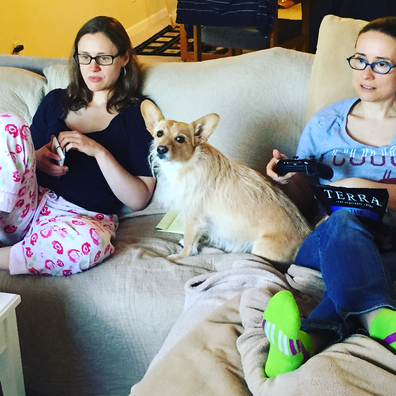

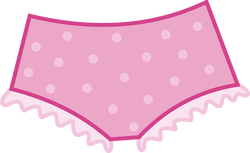
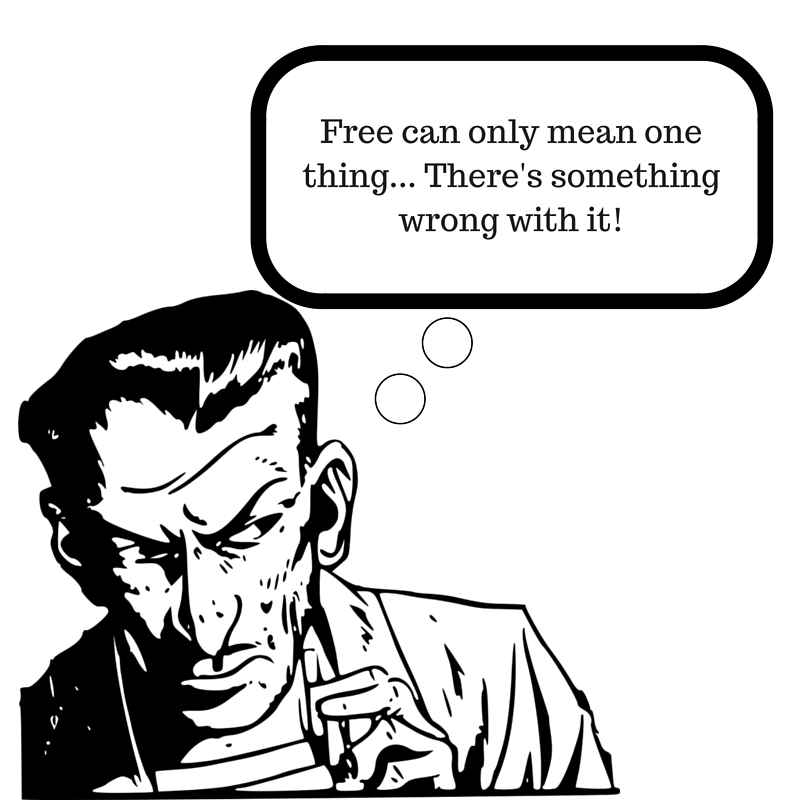
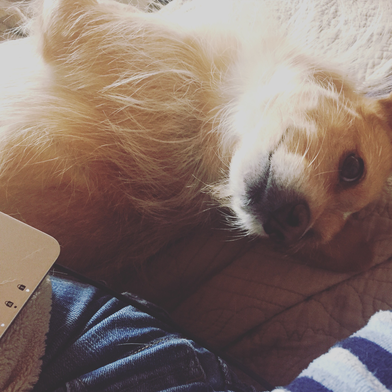
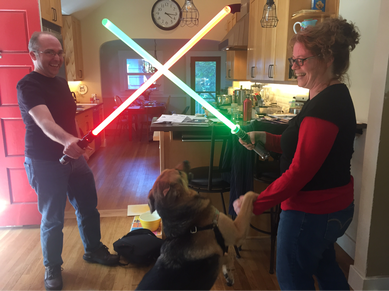
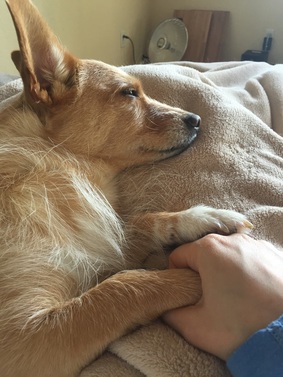


 RSS Feed
RSS Feed